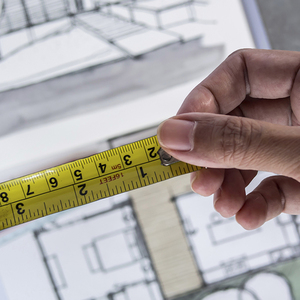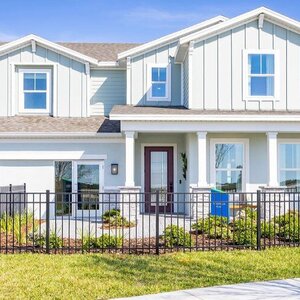The WPJ
THE WORLD PROPERTY JOURNALReal Estate Facts Not Fiction
Residential Real Estate News

COVID-19 Causing Unexpected Impacts to U.S. Housing Inventory
Residential News » Irvine Edition | By Monsef Rachid | October 28, 2020 8:05 AM ET
Life uncertainty, mostly caused by COVID-19, is keeping more than a third (34%) of would-be sellers out of the market, says a new report by Zillow.
Financial anxiety is a big part of that: 31% of homeowners considering selling in the next three years say a current uncertain or precarious financial situation is a reason to stay put, with 27% reporting a recent change in employment with a decrease in hours or pay, and 17% saying they or their spouse/partner were laid off or involuntarily unemployed -- which could be barriers to finding a new home.
A lack of certainty around where they work is another contributing factor. According to Zillow's survey, the most common change for homeowners in the past six months is that they are working from home more often. Previous Zillow research finds two-thirds of those working remotely during the pandemic say they would consider moving if given the flexibility to continue occasionally working from home. However, those plans may be in limbo as homeowners await clear guidance from their employers on when -- or if -- they will return to the office.
Nearly 40% of homeowners considering selling in the next three years say they anticipate a more favorable sale price if they wait, suggesting they don't feel pressure to list now in order to get a good price. Median sale prices are at all-time highs, up nearly 11% year-over-year for the week ending September 5th. Seller optimism has also rebounded; a September Fannie Mae survey finds a majority (56%) of people think it's a good time to sell, compared to 29% who felt that way in the spring.
"Potential sellers are likely correct that home prices have yet to reach their peak, but in the long run prices tend to rise, so there's no clear 'right time' to sell," says Zillow senior economist Jeff Tucker. "Homeowners who feel life is uncertain right now may think they can still get a strong price if they delay selling until they have more clarity. The catch is that waiting to sell may raise the cost of a trade-up. This fall's record low mortgage rates, which make a trade-up more affordable on a monthly basis, are not guaranteed to last."
More than 30% of homeowners (31%) considering selling in the next three years say their plans are paused because they are concerned about finding or affording a new home. A 2020 Zillow report[ii] finds 63% of sellers are also buyers; these dual-track homeowners may sell their home for top dollar only to enter an extremely competitive buyer's market where homes are going under contract in 12 days. Near-record low mortgage interest rates are giving buyers a leg up, but homeowners are also taking advantage of those low rates with 15% citing a recent refinance as a reason not to list their home for sale.
Virus safety was one of the least-frequently cited concerns among homeowners who have been hesitant to put their home on the market. Zillow's survey found 25% of potential sellers said they weren't selling because they were concerned about their household's health and safety during the pandemic. The rapid adoption of real estate technology such as 3D Home virtual tours and video tours has allowed many home shoppers to limit in-person showings. Those digital tools coupled with new safety standards and cleaning protocols may be making more would-be sellers feel comfortable during the pandemic.
A couple of other commonly-mentioned factors are holding homeowners back from selling, but to a far lesser extent. Zillow's survey found 6% of homeowners considering selling in the next three years indicated that taking advantage of mortgage forbearance was a reason to stay put. These programs allow homeowners to pause or reduce their monthly mortgage payments. One out of 10 homeowners said they weren't selling because an adult child or another family member had moved in with them during the pandemic.
The cumulative effect is a nationwide supply crisis with inventory down 37% year-over-year. COVID-19 shocked the market in early spring, prompting both buyers and sellers to pull back at similar rates. Since then, buyers have returned to the market in force, driven by demographic factors, low mortgage interest rates, and the Great Reshuffling -- a pandemic-driven desire to move to a home better suited for our lives in this new normal. Sellers have been far more reluctant to return, leaving half a million fewer homes on the market than a year ago. These survey results provide a better understanding of all the reasons why many homeowners are putting their selling plans on hold.
Financial anxiety is a big part of that: 31% of homeowners considering selling in the next three years say a current uncertain or precarious financial situation is a reason to stay put, with 27% reporting a recent change in employment with a decrease in hours or pay, and 17% saying they or their spouse/partner were laid off or involuntarily unemployed -- which could be barriers to finding a new home.
A lack of certainty around where they work is another contributing factor. According to Zillow's survey, the most common change for homeowners in the past six months is that they are working from home more often. Previous Zillow research finds two-thirds of those working remotely during the pandemic say they would consider moving if given the flexibility to continue occasionally working from home. However, those plans may be in limbo as homeowners await clear guidance from their employers on when -- or if -- they will return to the office.
Nearly 40% of homeowners considering selling in the next three years say they anticipate a more favorable sale price if they wait, suggesting they don't feel pressure to list now in order to get a good price. Median sale prices are at all-time highs, up nearly 11% year-over-year for the week ending September 5th. Seller optimism has also rebounded; a September Fannie Mae survey finds a majority (56%) of people think it's a good time to sell, compared to 29% who felt that way in the spring.
"Potential sellers are likely correct that home prices have yet to reach their peak, but in the long run prices tend to rise, so there's no clear 'right time' to sell," says Zillow senior economist Jeff Tucker. "Homeowners who feel life is uncertain right now may think they can still get a strong price if they delay selling until they have more clarity. The catch is that waiting to sell may raise the cost of a trade-up. This fall's record low mortgage rates, which make a trade-up more affordable on a monthly basis, are not guaranteed to last."
More than 30% of homeowners (31%) considering selling in the next three years say their plans are paused because they are concerned about finding or affording a new home. A 2020 Zillow report[ii] finds 63% of sellers are also buyers; these dual-track homeowners may sell their home for top dollar only to enter an extremely competitive buyer's market where homes are going under contract in 12 days. Near-record low mortgage interest rates are giving buyers a leg up, but homeowners are also taking advantage of those low rates with 15% citing a recent refinance as a reason not to list their home for sale.
Virus safety was one of the least-frequently cited concerns among homeowners who have been hesitant to put their home on the market. Zillow's survey found 25% of potential sellers said they weren't selling because they were concerned about their household's health and safety during the pandemic. The rapid adoption of real estate technology such as 3D Home virtual tours and video tours has allowed many home shoppers to limit in-person showings. Those digital tools coupled with new safety standards and cleaning protocols may be making more would-be sellers feel comfortable during the pandemic.
A couple of other commonly-mentioned factors are holding homeowners back from selling, but to a far lesser extent. Zillow's survey found 6% of homeowners considering selling in the next three years indicated that taking advantage of mortgage forbearance was a reason to stay put. These programs allow homeowners to pause or reduce their monthly mortgage payments. One out of 10 homeowners said they weren't selling because an adult child or another family member had moved in with them during the pandemic.
The cumulative effect is a nationwide supply crisis with inventory down 37% year-over-year. COVID-19 shocked the market in early spring, prompting both buyers and sellers to pull back at similar rates. Since then, buyers have returned to the market in force, driven by demographic factors, low mortgage interest rates, and the Great Reshuffling -- a pandemic-driven desire to move to a home better suited for our lives in this new normal. Sellers have been far more reluctant to return, leaving half a million fewer homes on the market than a year ago. These survey results provide a better understanding of all the reasons why many homeowners are putting their selling plans on hold.
Sign Up Free | The WPJ Weekly Newsletter
Relevant real estate news.
Actionable market intelligence.
Right to your inbox every week.
Real Estate Listings Showcase
Related News Stories
Residential Real Estate Headlines
- Las Vegas Area Home Prices Uptick 4.3 Percent Annually in March
- Single-Family Rent Growth in U.S. Trends Upward in 2025
- U.S. Mortgage Rates Tick Down Post Trump Tariffs Commencement
- President Trump's 'Liberation Day' Tariffs Potential Impact on the U.S. Housing and Mortgage Markets
- Baby Boomers Biggest Cohort of U.S. Home Buyers in 2025 as Millennials Decline
- U.S. Monthly Housing Payments Hit Record High in 2025
- U.S. Pending Home Sales Uptick in February
- Global Prime Residential Rent Slowdown Continued in Late 2024
- Ireland Home Price Inflation Hits 8 Year High in Early 2025
- Existing Home Sales in America Uptick in February
- Great Miami Area Residential Sales Decline 15 Percent Annually in February
- Mortgage Rates Uptick in Mid-March, Ending 9-Week Decline in U.S.
- World Property Ventures Builds the Future of Real Estate with New Funding Round
- U.S. Builder Sentiment Declines Amid Economic Uncertainty and Rising Costs
- Black Homeownership Rates in U.S. Enjoy Largest Annual Increase of All Racial Groups
- Wealthy Renters Are Taking Over More of the U.S. Rental Market
- If U.S. Congress Does Not Extend NFIP Soon, Thousands of Daily Home Closings Impacted
- U.S. Mortgage Applications Spike 11 Percent in Early March
- Greater Palm Beach Area Residential Sales Rise in Early 2025
- New Apartments in U.S. Are Leasing at Slowest Pace on Record
- U.S. Mortgage Rates Drop to 4 Month Low in March
- Overall U.S. Mortgage Delinquency Rates Dip in December
- New Tariffs on Canada, Mexico to Impact U.S. Homebuilder Input Costs
- Monaco's Property Market: A Tale of Two Cities
- U.S. Home Purchase Cancellations Surge, 1 in 7 Sales Getting Canceled
- U.S. Pending Home Sales Hit Historic Low in Early 2025
- Greater Miami Area Residential Sales Dip in January
- Governor DeSantis Supports Ending Property Taxes in Florida
- WPV Aims to Become the Berkshire Hathaway of Real Estate Tech
- U.S. Home Sales Slump Continues in January
- Average Americans Spend 38 Percent of Monthly Income on Mortgage Payments
- Switzerland's Safe-Haven Appeal Grows with World's Wealthy Homebuyers
- U.S. Builder Confidence Rapidly Declines in February
- Las Vegas Home Sales Rise 6.7 Percent Annually in January, Condo Sales Dip
- Homebuyer Demand in America Drops to 5-Year Low in Early 2025
- Ownership More Affordable Than Renting in Most U.S. Markets
- The World's First Global Listings Service Launches, Called a GLS
- Home Prices Continue to Rise in 89 Percent of U.S. Metros in Late 2024
- Global Luxury Residential Prices Showed Gradual Improvement in Late 2024
- U.S. Construction Hiring Rate Drops to Lowest Levels in 5 Years
Reader Poll
Marketplace Links
This website uses cookies to improve user experience. By using our website you consent in accordance with our Cookie Policy. Read More





